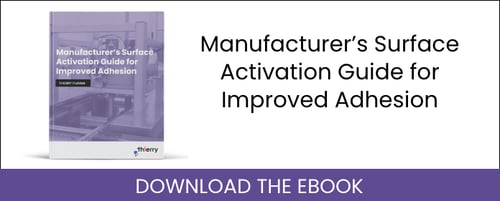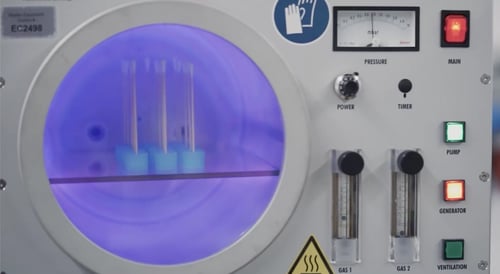The length of time the activation from plasma treatment remains is dependent on the material, system, and specific treatment. It is a common misconception that
plasma activation lasts “forever.” However, plasma activation for metals may last only for minutes or hours, and the user needs to plasma activate the metal again to acquire the same results. Plastics have a longer period where they are activated; they may be activated for as long as a couple of months. Activation can be measured by using contact angle measurement or with test inks, and Thierry can determine the best parameters for plasma treatment for its customers.
Plasma Treatments and Types of Plasma Coating
Many industries use plasma treatment technology to plasma coat surfaces. Plasma treatment may be used for aerospace or automotive components. Surfaces on a large range of materials can be coated with ultra-thin polymer layers. These layers may increase the performance or the aesthetics of the material. After plasma coating, the surfaces may become hydrophilic or hydrophobic based on the customers’ desired result. There are two types of plasma coating: plasma-enhanced chemical vapor deposition processes (PECVD) and physical vapor deposition (PVD). To form a coating layer on the surface, the following steps have to occur in the plasma treatment system:1. The gas is added in the system2. The gas is ionized to form plasma3. The particles diffuse through the plasma sheath4. Electrons bombard the surface5. The particles adsorb onto the surface.

